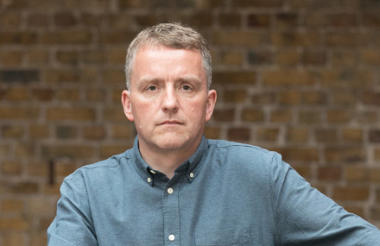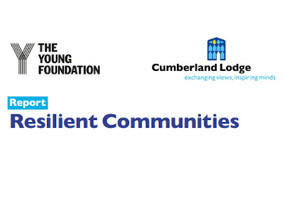NCVO is creating an equity, diversity and inclusion (EDI) subcommittee of its board of trustees.
The subcommittee will have an independent chair and will appoint external members. NCVO will shortly advertise for an independent chair through an open recruitment process.
The trustees joining the committee will be Julie Bentley, Jake Ferguson, Ingrid Tennessee and Chris Freed.
The committee will meet at least four times a year to “provide challenge and support to the board and senior leadership team in relation to practice, culture and approach to equity, diversity and inclusion”.
It is a full and permanent subcommittee of the board, not a working group.
NCVO said it is critical that EDI is embedded into its governance structure “if we are to hold the organisation to account for this work”.
The subcommittee's work so far has been focused on hearing from staff across NCVO about their experiences of injustices.
‘This is about power and privilege’
Anne Heal, interim chair of NCVO, wrote in an article on the charity's blog: “We cannot, as part of a sector dedicated to social change, hold a light up to other parts of society if we haven't demonstrated the courage to face the shortcomings of our own work and culture. For NCVO to play a leadership role in the sector, we must continue to drive change internally to our culture and behaviours.”
She added that “this is about power and privilege”, and highlighted how campaigns such as #CharitySoWhite and the recent ACEVO and Voice4Change report on racism in charities “have starkly shown that the charity sector, like other sectors, continues to be systemically racist”.
Heal wrote that the same is also true for sexism, homophobia, transphobia, classism and disablism; “our EDI work has confirmed this is the case in NCVO and it is important to acknowledge that head on”.
Ring-fenced funding for EDI work
The membership body will also be committing to further “substantial funding” to support internal changes, and aims to support all staff to engage with EDI.
It states that it is looking for practical ways to ensure it is doing all it can and recognises some of those actions “will likely involve expenditure”, so it has ring-fenced funding for that.
NCVO was not able to give an exact figure, as funding will be based on NCVO’s upcoming overall strategy along with the new EDI committee's priorities when its work starts.
It confirmed it will be making budgetary space for this work, and wants to make the public commitment that going forwards NCVO will properly resource its EDI work as an independent budget item.
NCVO is launching its new strategy later this summer, and states that it will be making EDI central to the strategy. It will also be publishing ethnicity and disability pay gaps.
Karl Wilding, chief executive of NCVO, wrote in an article on the charity's blog: “I’m increasingly learning that unless our work to confront power and privilege feels uncomfortable, we aren’t doing it right.”
He added: “Our EDI work has highlighted mistakes we and I have made. How we make decisions, the language we use, how we run meetings, and how we recognise the strengths and skills of different colleagues are just a few of the areas in which we need to change and improve.”
Staff reflection: ‘EDI work has shed light on the deep-rooted oppressive behaviours within NCVO’
Staff at NCVO have also reflected on the first phase of its EDI work. NCVO has published some comments anonymously, as it wants to ensure staff feel confident and safe sharing their reflections on the work in public.
One NCVO staff member said: “The findings from phase one of the EDI work has shed light on the deep-rooted oppressive behaviours within NCVO. Lessons need to be learnt, but most importantly, action needs to be taken. No longer should people from minority or protected characteristics backgrounds have to experience overt oppression, nor should anyone feel that they cannot speak up when something is wrong.
“If NCVO is to continue its role to lead the sector, things must change. We must dismantle the unfair structures, and we must allow people with lived experience to have a voice.
“Today I have a voice to share my experience as a BAME and disabled colleague to begin this journey with NCVO.”
Related articles












